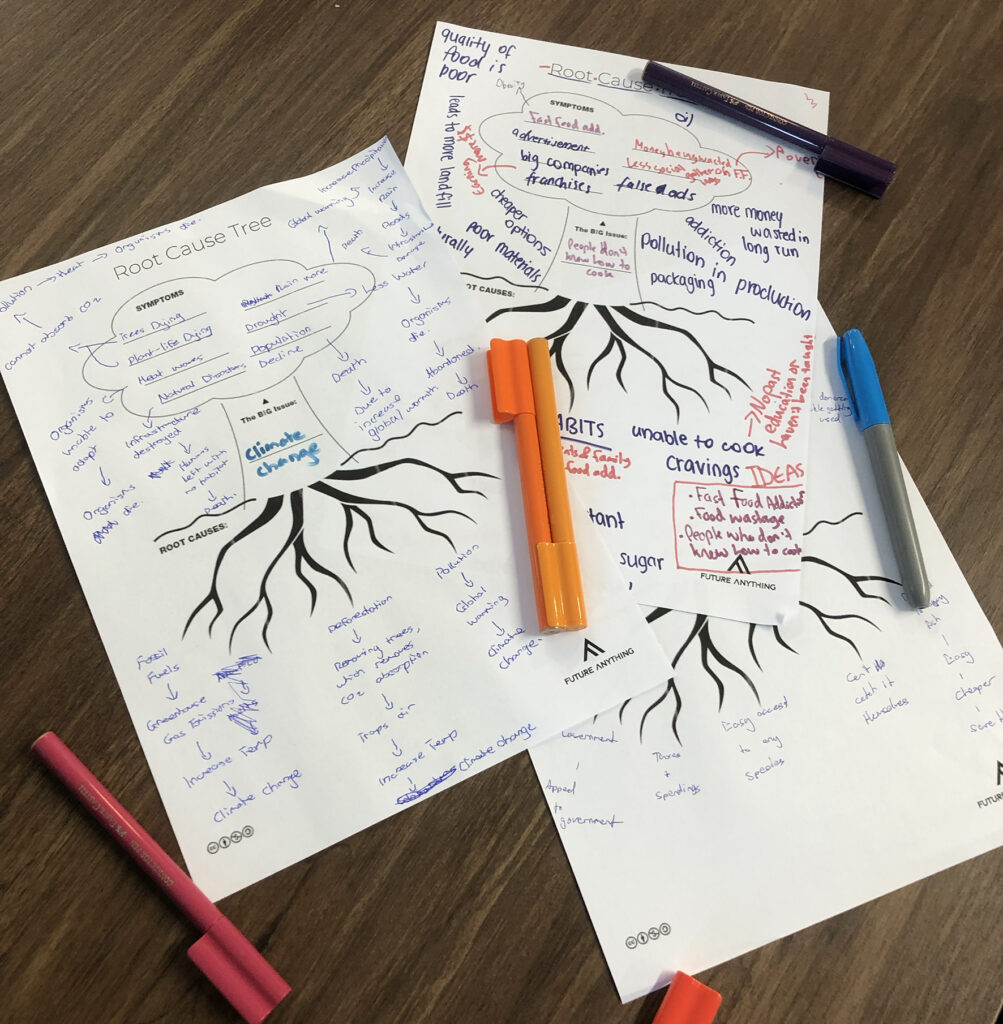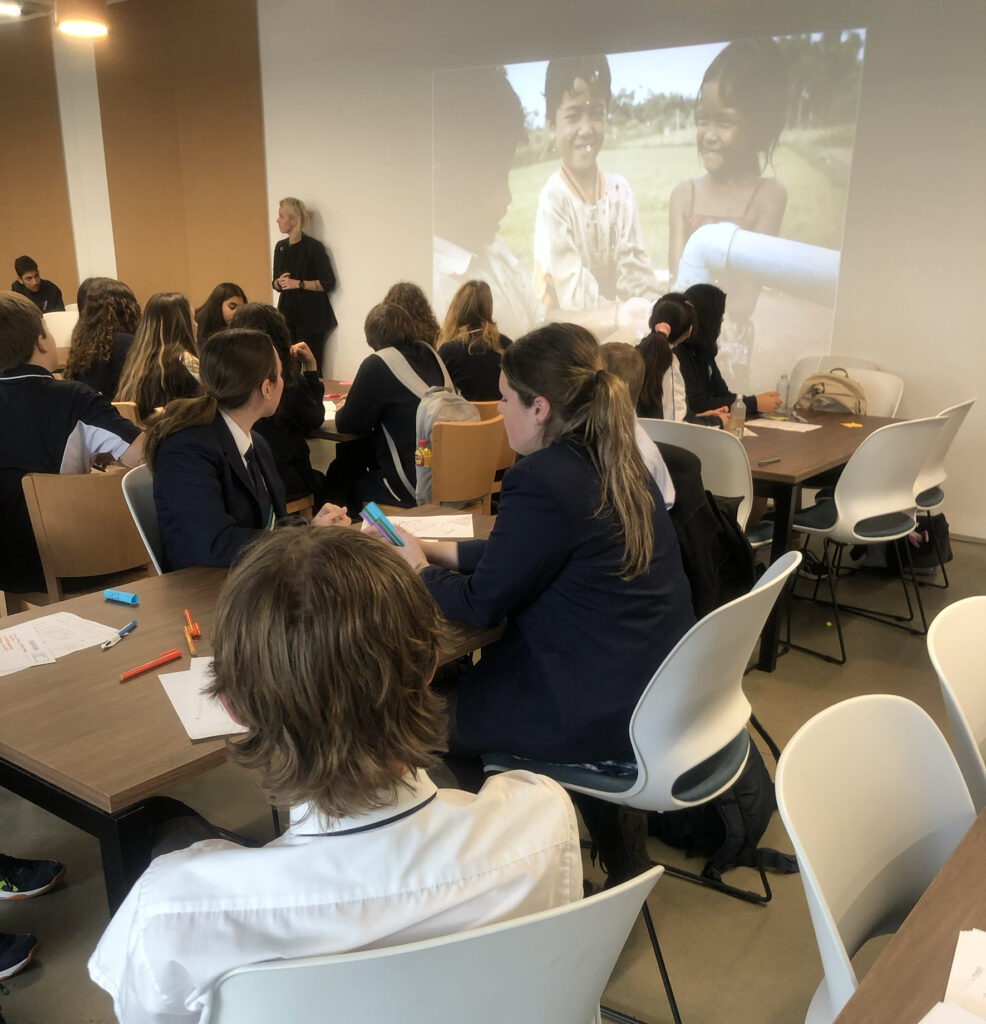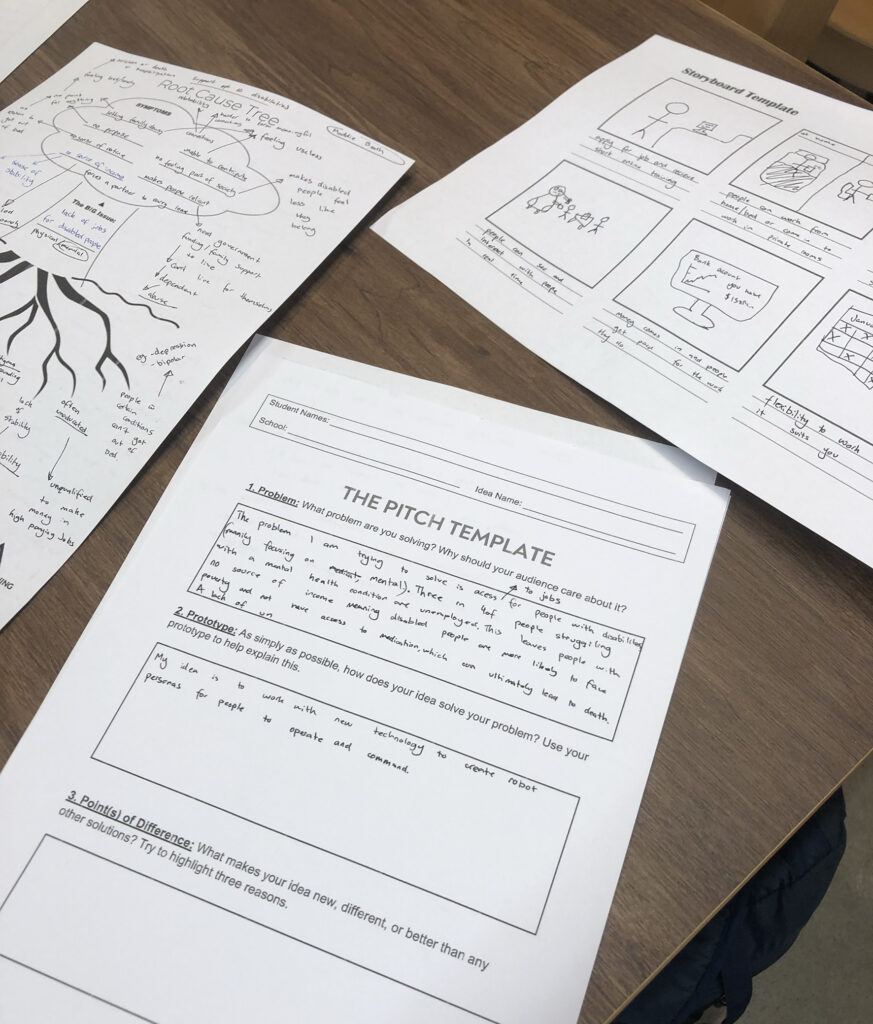


Some of our highest academic achievers and Gifted students had the chance to hear from Australia’s most inspiring changemakers at Bloom, in the underground innovator’s space at Curtin University’s St Catherine’s College. The Challenge was a fast-paced and hands-on day of listening, learning and doing. Students were expected to pitch their Big Idea to the judges and the most creative and innovative solutions to complex, local issues were the winners.
The creation of Apps for managing mental health, proposed solutions to the problems associated with overconsumption and commercial fishing, biodegradable and affordable in-soles for people living in developing nations and large robot fish that are controlled by their ‘game operators’ to collect marine rubbish were some of the many Big Ideas which were pitched to the audience in sixty seconds.
Five Year 10 Emmanuel Catholic College students immersed themselves in the Program and worked with other gifted students from Schools as far north as Alkimos and as far south as Halls Head. Several Emmanuel Catholic College students were selected to present their chosen Big Idea in front of the entire crowd in the “Semi Finals”. I was proud to hear from Maddison, who was chosen as one of the finalists. Maddison presented her Big Idea regarding the problem associated with accessibility to employment and health care for people living with a disability.
Maddison mentioned that the idea came to her after she interacted with Robots at a cafe in Japan earlier this year and that these ‘social’ interactions were beamed back to hospitalised patients with cancer, giving them a chance to socialise and be heard. Maddi mentioned that people living with a disability may have limited access to employment and this can;
“leave people with no source of income, [they] are more likely to face poverty and not have access to medication which is very important to their living condition.”
Students were asked to come up with their own definitions for Innovation and Entrepreneurship and were asked to self-identify their preferred learning style and personality types in preparation for productive group work and collaboration.
It was a valuable opportunity for several of our gifted students to collaborate with similar-minded students from across the Perth metropolitan area. Students created a mind-map using a Root Cause Tree Template, whereby they collaborated with other school students to define a problem that they are passionate about, brainstorm the symptoms of the problem and identify possible avenues for solutions, with the assistance of technology. Our students also demonstrated a keen interest in the conversation pertaining to the changing landscape of employability skills and opportunities for the future.
I was really impressed at the standard of work produced by our students, the way they engaged with the Challenge and the way they were able to articulate their concerns and devise possible solutions to complex contemporary social, economic and environmental problems which will affect their futures.
Mark Cornish
Head of Learning Excellence
